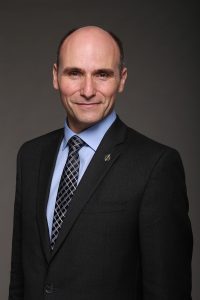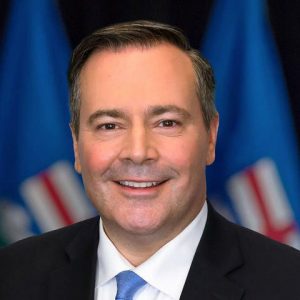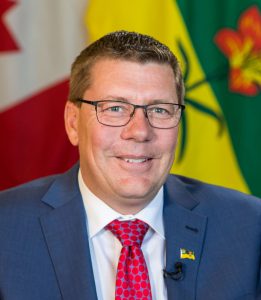Vaccine mandate and the truck convoy protest
Vaccine mandate and the truck convoy protest

Jean-Yves Duclos,
Federal Health Minister
By Lea Luciano
The Philippine Reporter
With the continuous surge of Covid-19 cases overwhelming hospitals and collapsing healthcare systems, Federal Health Minister Jean-Yves Duclos proposed mandatory vaccine policy to all provinces.
“Our healthcare system in Canada is fragile,” said Duclos during a briefing on January 7, 2022 with federal ministers and health officials.
“What would make us through this crisis and end it is vaccination. I see it in my own province, 50 percent of hospitalizations now in Quebec are due to people not having been vaccinated. That is a burden on healthcare workers, a burden on society, which is very difficult to bear and for many people to understand.”
Duclos believes provinces and territories will consider a vaccine mandate over the next weeks and months. Vaccine mandates for provinces are not federal responsibilities but fall under provincial and territorial jurisdiction. Each province has their own vaccine mandates and public health restrictions.

Jason Keney,
Alberta Premier
Alberta Premier Jason Keney responds in a tweet saying, “it is a personal choice that individuals must take” and that the Alberta Legislature removed the power from the Public Health Act in 2021 to mandate vaccines.
On January 15, 2022, a vaccine mandate took effect for cross-border truckers requiring them to quarantine if they are unvaccinated when crossing the border into Canada. As a result, thousands of truck drivers across Canada embarked on a weeklong convoy starting from Vancouver to Ottawa to protest for their rights.
The so-called Freedom Rally arrived at the Parliament Hall on Saturday, January 29, 2022 and were joined by supporters who are rallying to end COVID-19 vaccine mandates. The protesters also voiced out their general frustrations on public health restrictions and vaccination policies in the workplace that are limiting their way of living.
In an interview by CTV, President of West Coast Trucking Association Vijaydeep Singh Sahasi said that their group supports the Freedom Convoy’s right to protest against the vaccine mandates.
“We as truckers will certainly support truckers. It is their own decision whether they want to be vaccinated or not. If you talk about the South Asian Community, we all are, most of us are vaccinated,” said Sahasi.

Scott Moe,
Saskatchewan Premier
Saskatchewan Premier Scott Moe released a statement on Saturday showing his support towards the drivers participating in the truck convoy to end the cross-border ban that targets unvaccinated drivers.
Moe is fully vaccinated with his booster shot. Earlier this year, he contracted Covid-19 with no symptoms, but he believes that the vaccine prevented him from becoming seriously ill.
“Vaccination is not reducing transmission, the current federal border policy for truckers makes no sense,” wrote Moe.
“An unvaccinated trucker does not pose any greater risk of transmission than a vaccinated trucker.”
Moe added that in the near future, the government of Saskatchewan will no longer mandate proof of negative Covid-19 test and proof of vaccination. In other parts of the world, European countries like Austria mandated the strict COVID-19 measure making it compulsory for all of the country’s residents over 18 to get vaccinated. It came into effect on February 1, 2022.
According to the Austrian Health Ministry’s website, under this law, people who are pregnant or cannot be vaccinated due to medical reasons are exempt. Those who are recovering from Covid-19 infections are also exempt for 180 days from the date they received their first positive PCR Covid-19 test. Once the mandate has come into effect, those without vaccine certifications or an exemption will pay a fine of 600 euros ($860.41).
Vaccine hesitancy remains a challenge in Canada. In a recent Ipsos poll, two in three (68%) Canadians support mandatory vaccination, but 56% of Canadians are concerned about potential long-term effects of taking booster shots.

Vijaydeep Singh Sahasi,
President of West Coast Trucking Association
Data from Angus Reid Institute finds unvaccianted Canadians’ reasons for avoiding the vaccine are due to personal freedom, medical concerns, or they don’t see Covid-19 as a threat.
Nazeem Muhajarine, a professor of community health and epidemiology professor at University of Saskatchewan, said that more effort is needed to address the concerns of the people who remain hesitant to get vaccinated as opposed to those who refuse vaccination.
“[It] is really about the trust that people have on the vaccine itself but also the authorities, government, pharmaceutical companies, health authorities in your province, in your regions and even scientists who are doing studies and generating information,” said Muhajarine.
He added that more information regarding the effectiveness of vaccines and its side-effects are needed for those who are still not yet immunized.
Comments (0)